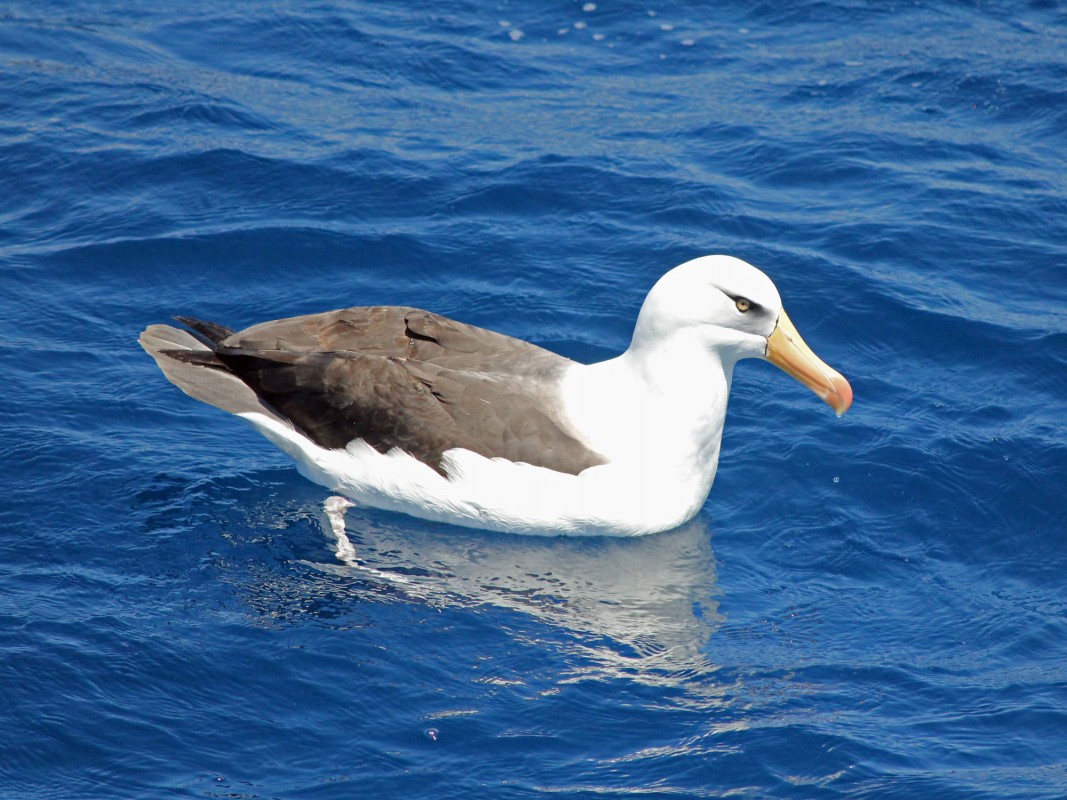Plastic Takes Deadly Toll

The plastics we throw away have been mistakenly eaten by around 90 per cent of all sea birds alive today - and the rate is expected to grow to 99 per cent by 2050.
The figures, revealed in an international study published yesterday, are particularly relevant for New Zealand, which is considered the global centre of seabird diversity.
The ingested plastics included bags, bottle caps and plastic fibres from synthetic clothes, which had washed out into the ocean from urban rivers, sewers and waste deposits. Birds mistook the brightly coloured items for food, or swallowed them by accident, which caused gut impaction, weight loss and sometimes death.
Researchers from Australia's national science agency CSIRO and Imperial College London assessed how widespread the threat of plastic was to the world's seabirds, including albatross, shearwaters and penguins, and found most seabird species have plastic in their gut. They found that while plastic had been found in the stomachs of less than 5 per cent of sea birds in 1960, this had climbed to a rate of 80 per cent by 2010, and the figure was projected to affect 99 per cent of sea birds within the next 35 years.
"For the first time, we have a global prediction of how wide-reaching plastic impacts may be on marine species - and the results are striking," said study co-author Dr Chris Wilcox, a senior research scientist at CSIRO.
The researchers found plastics would have the greatest impact on wildlife where they gather in the Southern Ocean, in a band around the southern edges of Australia, South Africa and South America.
Surprisingly, one of the most threatened areas was the Tasman Sea - its surrounding seas had previously been considered to be relatively free of plastic pollution.
Dr Matt Rayner, a land vertebrates curator at Auckland War Memorial Museum, said New Zealand had more endemic seabirds than any other country - 10 per cent of all seabirds on the planet breed here - and many fed on small prey with gelatinous surfaces which look similar to small pieces of floating plastic.
"At the Auckland Museum we frequently autopsy seabirds whose stomachs are full of plastic debris," he said.
"What can we do? Well, first we should be concerned; as top predators, seabirds are indicators of the health of our oceans and many of our seabird populations are not doing well, meaning our oceans are not doing well.
"On a local small scale, the public should become more concerned with the massive use of plastics in our everyday lives; on a global scale we need to be concerned that our politicians are engaged and concerned about such environmental issues as part of a global pollution mitigation strategy."
A major study published last year found the world's oceans were laden with nearly 270,000 tonnes of plastic pollution, with larger plastic debris usually lingering around the coast and then getting churned into tiny particles further from shore.
Massey University ecologist Dr Kyle Morrison believed the lethal and sub-lethal effects of plastic ingestion must now be considered alongside the other major anthropogenic threats to seabirds including fisheries interactions, introduced predators and climate change.
"As marine predators ourselves, humans are not immune to increasingly polluted and poisonous oceans," he said.
"Each of us can contribute to reversing the plastic ingestion trend through simple consumer decisions like refusing to use plastic bags and not using exfoliating hygiene products with plastic micro-beads."
The study was published in the scientific journal PNAS.
Divers declare war on sea litter
Today marks D-Day for divers around the country who will recover as much rubbish as they can from the ocean this month as part of the Dive Against Debris effort.
Diving groups, ranging from local scuba divers to dive operators, will be hauling up plastic bags, bottles, fishing line and car batteries that litter the sea floors around the country's main centres.
The New Zealand Underwater Association (NZUA) has organised a new campaign called Trash2Cash, which aims to raise funds towards identifying the major sources of marine litter and put to Kiwis a problem that is often ignored.
"Divers are the natural ambassadors of the ocean with a vested interest in protecting it. NZUA works with divers to address underwater debris issues," spokesman Andy Stewart said.
"The Trash2Cash campaign will directly benefit the underwater environment by not only removing potentially thousands of kilograms of trash, but also raising awareness of this issue and much-needed funds to help prevent trash from piling up in our ocean."
In June, six divers collected around 100kg of rubbish in just over 30 minutes in Okahu Bay in Auckland to mark World Oceans Day.
This month's Dive Against Debris programme was organised worldwide by the Project AWARE Foundation, a nonprofit organisation mobilising divers to protect the ocean.
Related Articles:
Photo: Campbell Albatross



